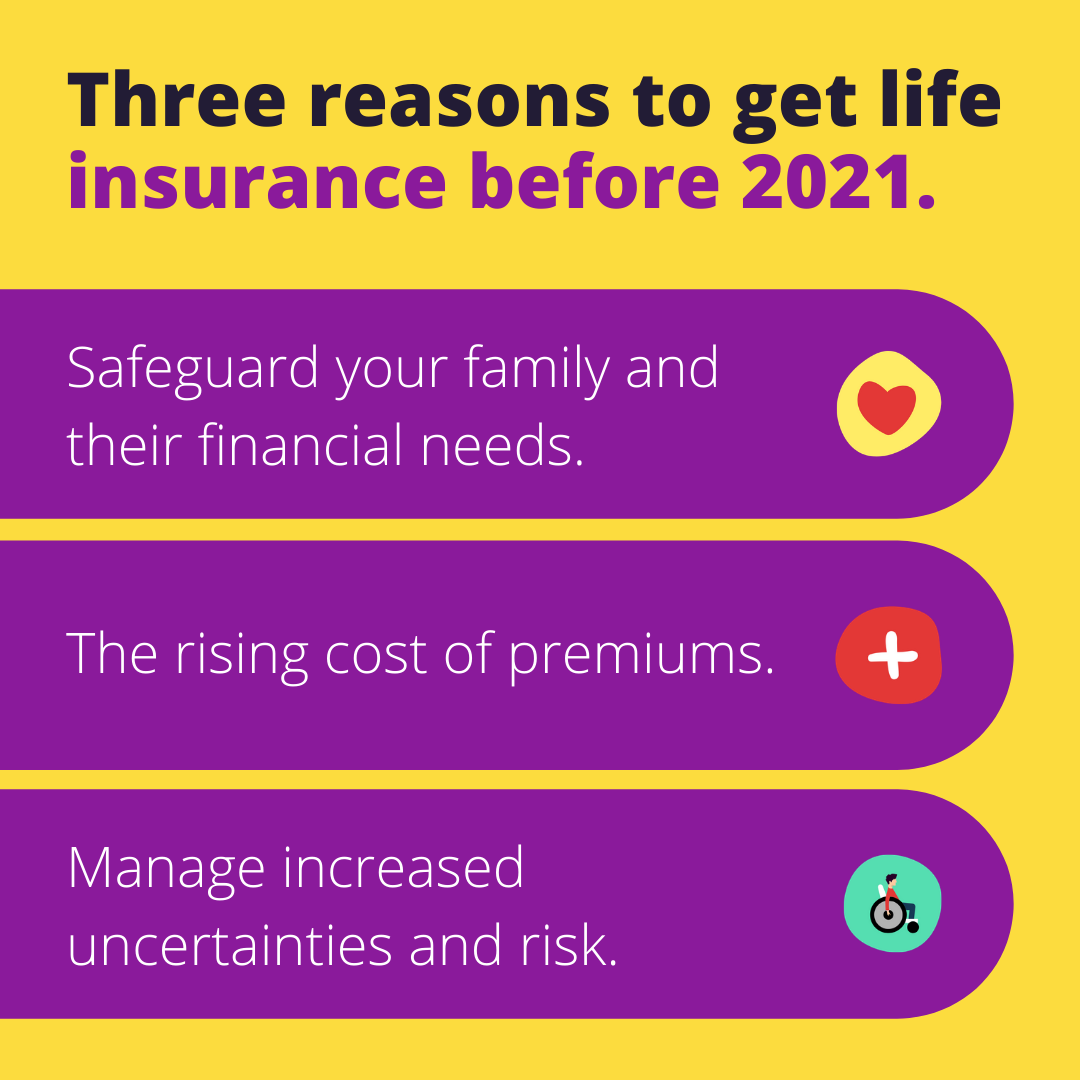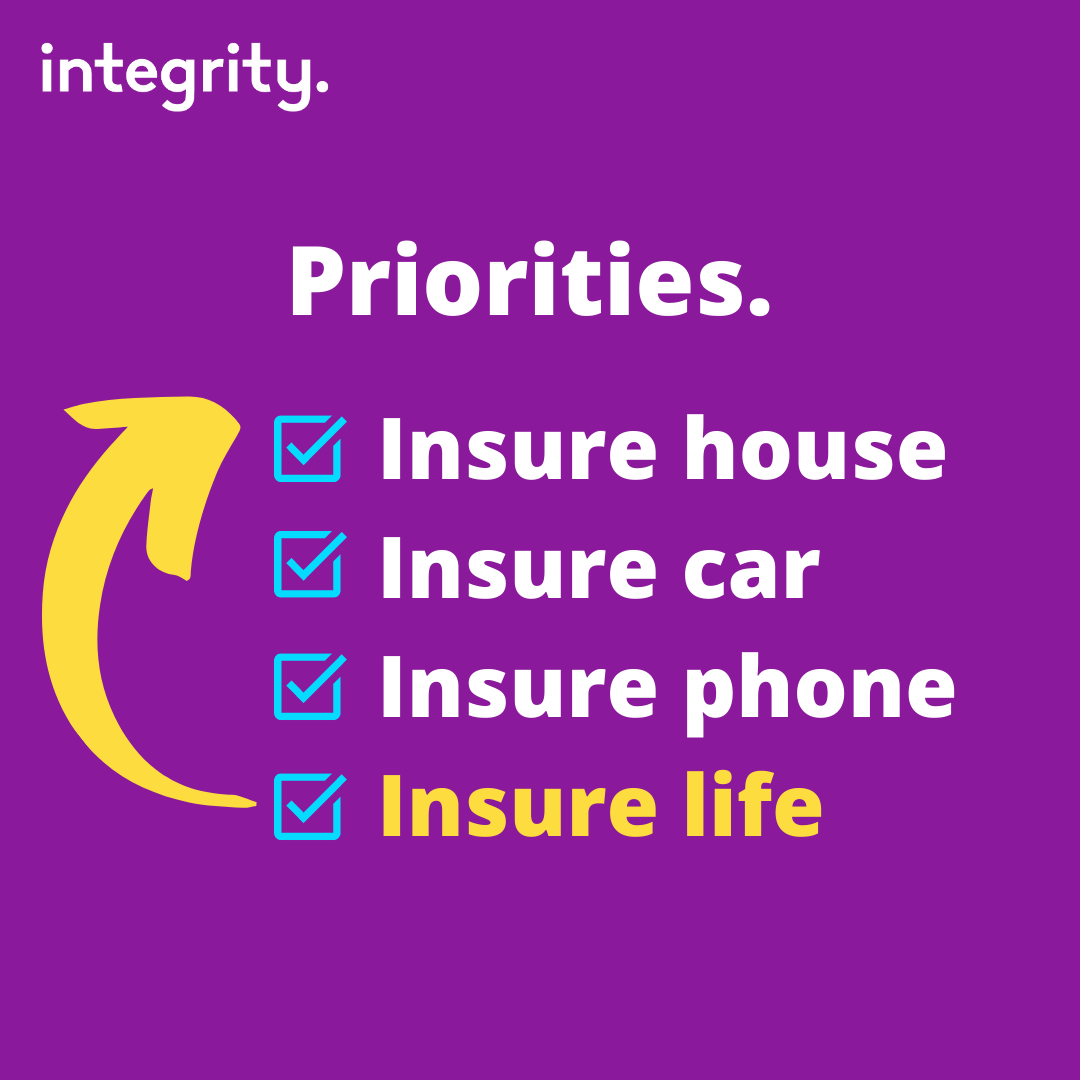We spend a lot of time creating information for customers on how best to approach the purchase of Life Insurance. We understand it can be a complicated purchase so, here is a handy guide on key considerations for first time buyers.
Believing life insurance is too expensive.
One of the most common objections we hear from those who do not have life insurance is around the cost. Many people believe that it is out of reach for most Australians. The truth is, according to Canstar, consumers overestimate the cost of life insurance by almost double*.
Life insurance isn’t, generally, any more expensive than health insurance or car insurance. The big difference is that we are talking about your life and the livelihood of those who depend on you. Based on that, it is worth looking into (at the very least).
Buying too little coverage.
The more life insurance coverage you buy, the more you will pay. That does not mean you should skimp on coverage, though, just to save money. The last major study of this by Rice Warner in 2015 estimated that Australians are underinsured by $471 billion for basic life cover and $3,435 billion for income protection. That is a staggering amount, and the industry continues to grapple with how to address this.
Relying too much on employer-provided coverage.
If you have a group life insurance policy through work, don’t assume that the coverage you have is adequate. Generally, these types of policies are based on broad assumptions rather than individually costed needs. Plus, group life insurance policies typically aren’t portable. That means that you can’t keep your coverage if you leave your job. With the large number of layoffs related to the coronavirus pandemic, people with life insurance policies through work have lost their coverage, that’s why it’s important to either have your own policy or have additional coverage which tops up the gap.
Keeping Information from the insurance company.
When you apply for life insurance, you’ll be asked a variety of questions about your health, your family’s medical history, your occupation and even your hobbies. This is part of the process called underwriting that insurers use to decide whether to give you coverage and what rate to charge you. It’s important to answer all of the questions honestly. Insurers may verify the information you provide by asking for your permission to get your medical records from your doctor and your prescription drug history, and using other third party sources and possibly requiring you to take a medical exam. An insurer might deny you coverage if it discovers you’ve withheld information on an application. If you do successfully hide something (which can be hard to do), the insurer might not pay a claim if your death is related to the information you didn’t disclose.
Not understanding what you’re buying.
Understanding the types of life insurance is not a simple task. For starters ‘life insurance’ isn’t just cover if you die. It can also cover things like permanent disability, trauma or accidents, or your income if you’re unable to work. There are many types of life insurance and the only way to really know what you’re covered for is to read the documentation or speak to your Financial Adviser.
Not understanding the products also robs you of one of the enduring benefits of life insurance (outside making a claim) which is comfort. If you never have to make a claim you have the comfort of knowing in a near-miss how you or your dependents would be taken care of. COVID-19 has shown many people what it feels like to be unprepared and that feeling can be awful. Life Insurance can give you peace of mind in uncertainty.
Believing you can’t be covered if you have ever been sick (or will have to pay a lot).
Whether you have pre-existing conditions or have had an illness or injury in the past, does not automatically disqualify you from Life Insurance, nor does it mean you will have an exclusion. Take Mental Illness as an example, if you have had minimal time off for a mental health situation, and it was a while ago, but have since returned to work, we would generally consider that part of ‘life’ and standard rates would likely apply.
Putting Off the Purchase of Life Insurance.
One of the biggest mistakes when it comes to buying life insurance is waiting to buy a policy. Budgets and time can easily push off a life insurance purchase. And don’t wait with the hope that you’ll improve your health, such as losing weight, because every year you get older, and waiting increases the chance that you could develop other health issues.
The younger you are when you buy life insurance, the more affordable it will be. That’s because your age as well as your health affect the rate you pay.
As the saying goes, life insurance is like a parachute, if you don’t have it the first time you need it, you don’t get a second chance.
Please note. This information has been prepared without considering your personal objectives, financial situation or needs. Before acting on it, please consider its appropriateness to your circumstances.
*Canstar.com.au/life-insurance/can-you-afford-life-insurance-or-overestimating.









